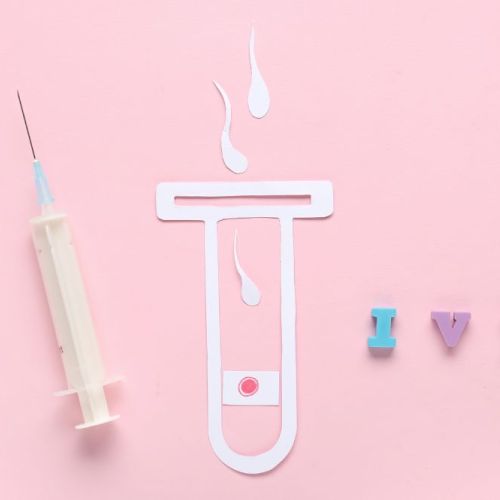When to See Fertility Specialist

If you’re trying to get pregnant, you may feel like you’ve been trying to conceive for a long time. You may be starting to wonder how long you should keep trying and when to see a fertility specialist. If you’re under the age of 35 and have been having unprotected sex for 12 months or longer without getting pregnant, or if you’re over 35 and have been trying for six months but haven’t been successful, reach out to the fertility experts at the Center for Reproductive Health.
Other Reproductive Challenges
Infertility may be caused by problems with the woman, the man or both. Some factors that may present a challenge to fertility include:
- History of irregular periods
- Family history of early menopause
- History of two or more miscarriages
- Problems with male sexual function
- Cancer treatment
- History of sexually transmitted infections (STIs)
Some medical conditions can cause fertility challenges such as endometriosis, polycystic ovary syndrome, uterine fibroids and primary ovarian insufficiency. If your thyroid is underactive, it can impact ovulation and lead to irregular periods. You may benefit from seeing a fertility specialist if you have any chronic medical conditions such as diabetes or heart disease.
Body Weight
Attaining a healthy body weight may help you to conceive. Being overweight or underweight can affect your ability to get pregnant. Excess weight can interfere with ovulation, reducing your chances of conceiving. Being overweight can also cause irregular periods. If you do get pregnant, being overweight can raise the risk of complications such as gestational diabetes and hypertension.
Being underweight can also trigger irregular menstrual cycles, especially if you’re losing a lot of weight or over exercising. Babies born to mothers who are underweight have an increased risk of low birth weight or being born prematurely.
The Impact of Age
If you’re over the age of 35, it’s a good idea to see a fertility specialist sooner rather than later. Your fertility starts to decline in your thirties, and as time continues to pass, this decline accelerates. Aging has an impact on the quantity and quality of your eggs, and it also has an impact on sperm quality. This can make it harder to get pregnant, and if you do get pregnant, you’re at a higher risk of complications or fetal abnormalities. If you’re between the ages of 27 and 34 but aren’t ready to try to get pregnant, it’s a good idea to consider freezing your eggs.
How Can a Fertility Specialist Help?
A fertility specialist can provide an expert evaluation of reasons you may be having difficulty conceiving. This starts with a discussion of your medical history and your partner’s medical history along with a full medical examination. This helps the specialist determine what tests should be run. They may be able to pinpoint the cause of your infertility. In some cases, the cause remains unexplained.
The experts at the Center for Reproductive Health can explain your options in assisted reproductive technologies, whether or not the cause of your infertility was identified. At your consultation, they can explain the risks and benefits of possible treatments so you can make the choice that’s best for you. Schedule a consultation today.
Eliran Mor, MD
Reproductive Endocrinologist located in Encino, Valencia & West Hollywood, CA
FAQ
What does a reproductive endocrinologist and infertility specialist do?
Reproductive endocrinology and Infertility is a sub-specialty of Obstetrics and Gynecology. In addition to managing medical and surgical treatment of disorders of the female reproductive tract, reproductive endocrinologist and infertility (REI) specialists undergo additional years of training to provide fertility treatments using assisted reproductive technology (ART) such as in vitro fertilization.
Reproductive endocrinologists receive board certification by the American Board of Obstetrics and Gynecology in both Obstetrics and Gynecology and Reproductive Endocrinology and Infertility.
When should I see an REI specialist?
In general, patients should consider consulting with an REI specialist after one year of trying unsuccessfully to achieve pregnancy. The chance of conceiving every month is around 20%, therefore after a full year of trying approximately 15% of couples will still not have achieved a pregnancy.
However, if a woman is over the age of 35 it would be reasonable to see a fertility specialist earlier, typically after 6 months of trying.
Other candidates to seek earlier treatment are women who have irregular menses, endometriosis, fibroids, polycystic ovary syndrome (PCOS), women who have had 2 or more miscarriages, or problems with the fallopian tubes (prior ectopic pregnancy).
What are the reasons we are having trouble conceiving?
Approximately 1/3 of the time cause for infertility is a female factor, 1/3 of the time a male factor, and the remaining 1/3 a couples’ factor.
At CCRH, we emphasize the importance of establishing a correct diagnosis. Both partners undergo a comprehensive evaluation including a medical history and physical exam.
Furthremore, the woman’s ovarian reserve is assessed with a pelvic ultrasound and a hormonal profile. A hysterosalpingogram (HSG) will confirm fallopian tube patency and the uterine cavity is free of intracavitary lesions. A semen analysis is also obtained to evaluate for concentration, motility, and morphology of the sperm.
Additional work up is then individualized to direct the best possible treatment option for each couple.
What is IVF? What is the process like?
In vitro fertilization (IVF) is the process that involves fertilization of an egg outside of a woman’s body.
The process starts with fertility drugs prescribed to help stimulate egg development. In your natural cycle, your body is only able to grow one dominant egg, but with stimulation medication we can recruit multiple eggs to continue to grow. After about 8-10 days of stimulation, the eggs are surgically retrieved and then fertilized with sperm in a specialized laboratory. Fertilized eggs are then cultured under a strictly controlled environment within specialized incubators in the IVF laboratory for 3-5 days while they develop as embryos. Finally, embryos (or an embryo) are transferred into the uterine cavity for implantation.
Should I have IVF?
Before deciding if IVF is the right choice, it’s important to sit down with an REI specialist to discuss available treatment options. For some people, other methods such as fertility drugs, intrauterine insemination (IUI) may be the best first choice treatment. At CCRH, we believe each individual couple is unique and not everyone needs IVF.
Is the IVF procedure painful?
While not painful, the fertility medications may some side effects including headaches, hot flashes, mood swings, and bloating. The injection sites may also bruise.
Will IVF guarantee a baby?
Unfortunately, no. Many people think once they start IVF it’s a matter of time that they will be pregnant and have a baby. But according to national statistics per the Society of Assisted Reproduction (SART), on average 40% of assisted reproduction cycles achieve live births in women under age 35. The chances of success then continue to decrease with advancing age.
At CCRH, we employ only evidence-based interventions to ensure patient safety and optimal outcome. While we cannot guarantee a baby, we guarantee that you will receive the best, most advanced, personalized care to help you maximize your chance of a baby.
What is the success rate for IVF?
The average IVF success rate (success measured in live birth rate) using one’s own eggs begins to drop around age 35 and then rapidly after age 40. This is due to the decline in egg quantity and egg quality as a woman ages.
Our clinic’s success rate consistently beats the national average year after year.
Do insurance plans cover infertility treatment? How much does IVF cost?
Individual insurance plans often do not have any coverage for infertility treatments. If you have a group plan, you can call members services to see if they have coverage for infertility (including consultation/workup and IVF).
After your consultation with our REI specialist, one of our dedicated account managers with sit with you to go over the cost of treatment.




